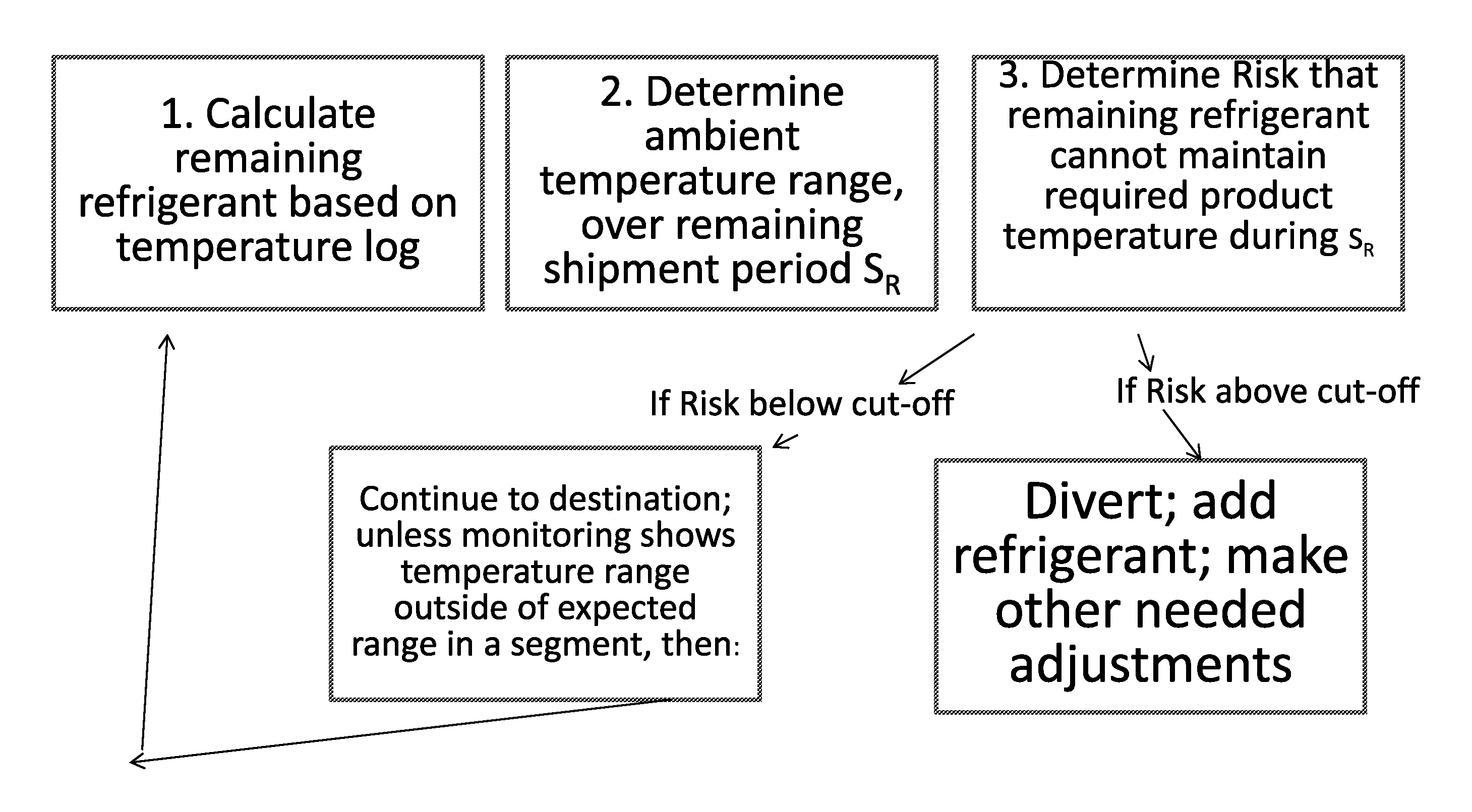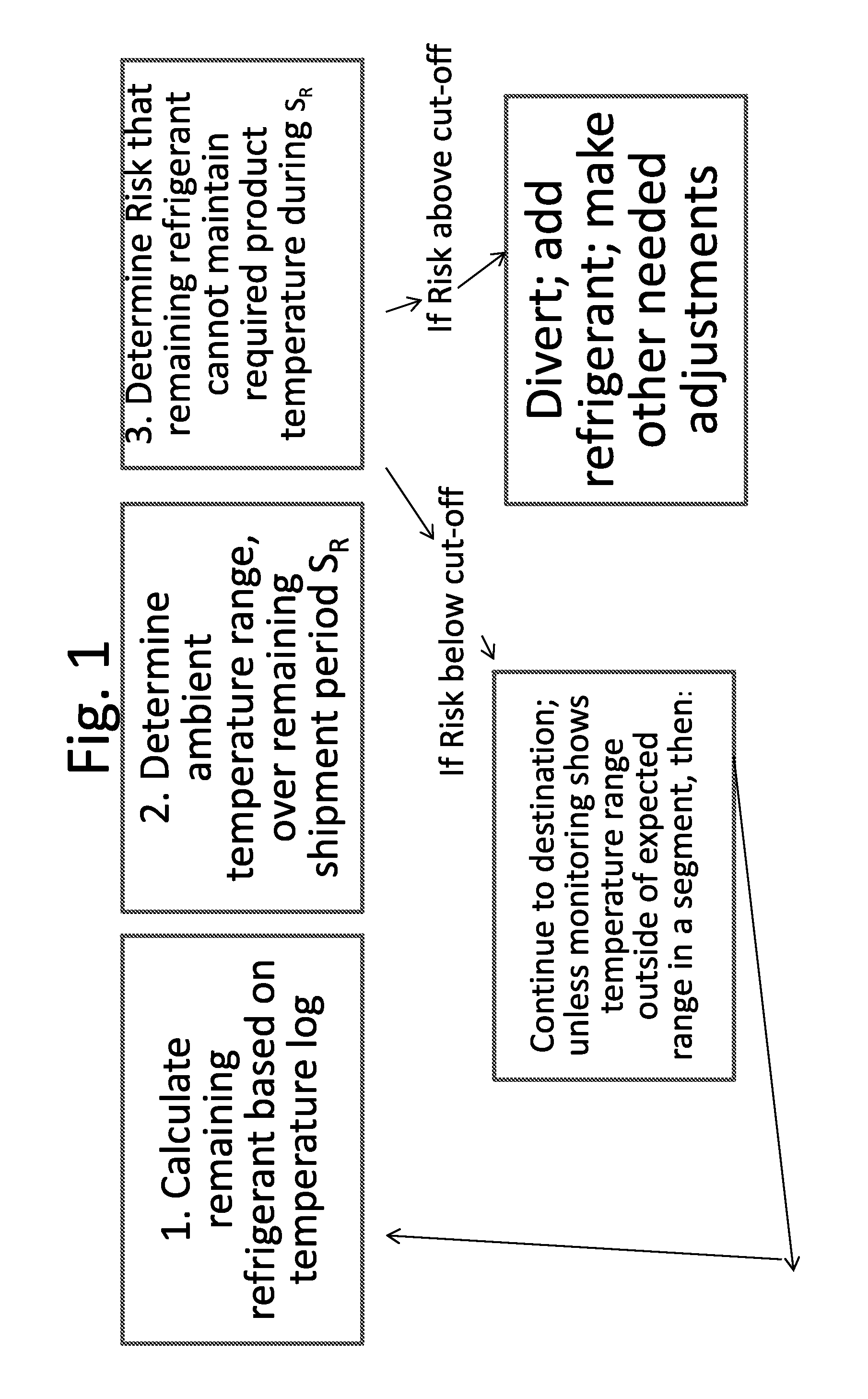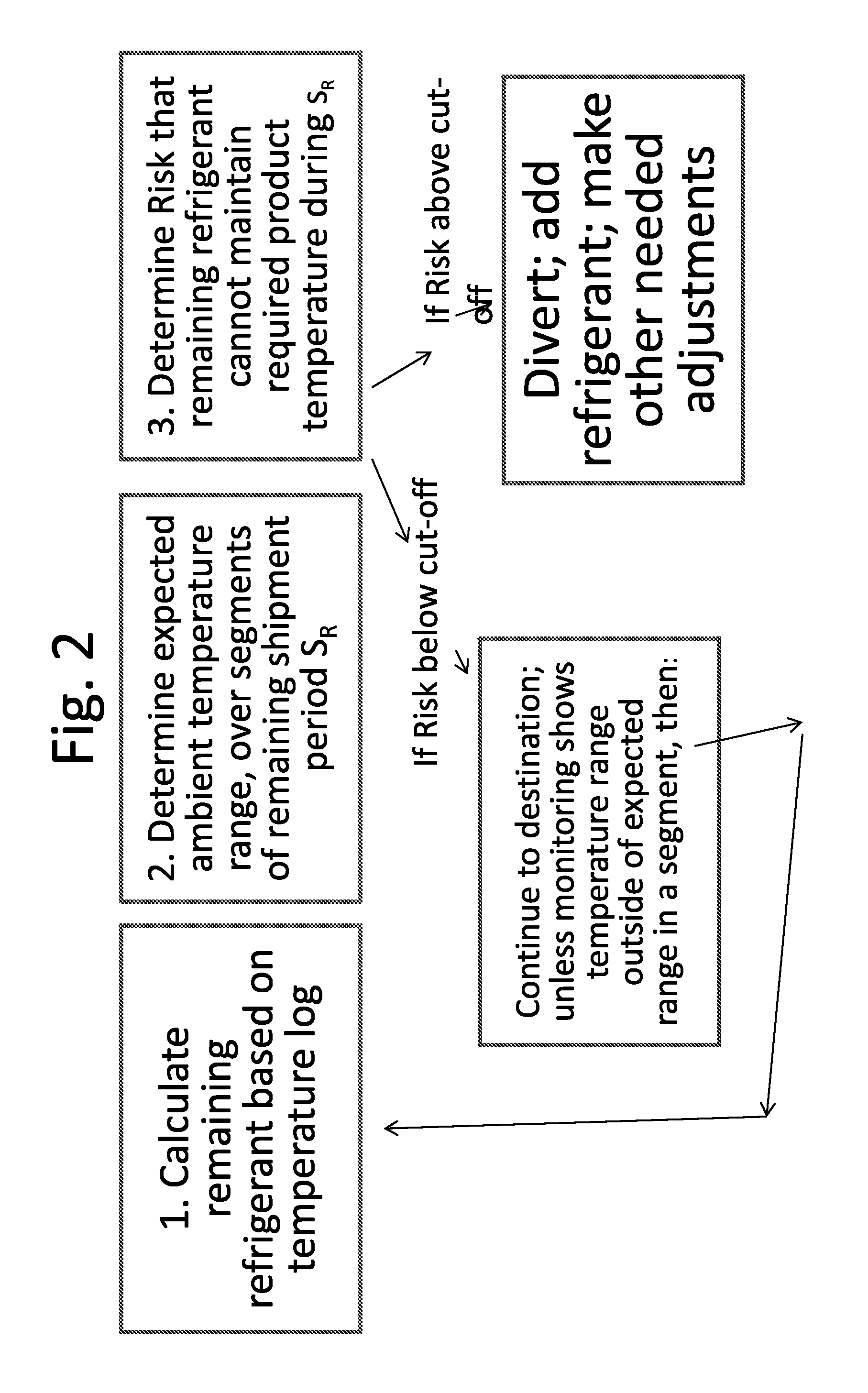Monitoring temperature-sensitive cargo with automated generation of regulatory qualification
a technology of temperature-sensitive cargo and automated generation, applied in the field of monitoring shipment, can solve the problems of only estimating the time in the shipment, unable to meet the requirements of medical use, and blood and perishable biological materials are problematic to be shipped, so as to shorten the effective life of products
- Summary
- Abstract
- Description
- Claims
- Application Information
AI Technical Summary
Benefits of technology
Problems solved by technology
Method used
Image
Examples
third embodiment
[0025]The certification or verification of the cargo's integrity for regulatory purposes, which is done using the third embodiment above, can also be accomplished with conventional systems where a certificate is generated after shipment from the logger data, or with one or more of the logger and / or sensor embodiments described below.
[0026]The second and third embodiments of the invention described above (the bar-coded log display and the automated qualification certificate), if present, will both increase the practicality of diverting the shipment to a different location than originally planned, as the new location has a displayed (encoded) time / temperature (and optionally, humidity) log, which can be readily scanned and decoded, as well as a certification that the product it receives is qualified, from a regulatory standpoint, for the end use. The automated qualification certificate and time-temperature log display also shows the recipient if the attempts to preserve the shipment w...
second embodiment
[0029]To carry out the second embodiment without real time monitoring using RF or wireless transmission, the time-temperature-humidity logger preferably identifies the materials shipped (for example, using a bar code), and also preferably has a coded display of the time-temperature-humidity (again, preferably a bar code) which can be scanned and readily decoded. The coded display in this embodiment can be GS1 or other reduced space symbology (RSS) encoding, as this encoding can display more data in a smaller display, and the time-temperature-humidity log could entail a large amount of data.
[0030]For the third embodiment, the time / temperature logger must internally carry data for a certificate, and preferably, the logger will carry the data or a certificate itself in an all-device readable file format (like Pdf, Excel, Text or other widely-used format), and more preferably the logger can be directly plugged into a device port for reading the data or certificate (e.g. a USB port, wher...
PUM
| Property | Measurement | Unit |
|---|---|---|
| temperature | aaaaa | aaaaa |
| temperature | aaaaa | aaaaa |
| temperatures | aaaaa | aaaaa |
Abstract
Description
Claims
Application Information
 Login to View More
Login to View More - R&D
- Intellectual Property
- Life Sciences
- Materials
- Tech Scout
- Unparalleled Data Quality
- Higher Quality Content
- 60% Fewer Hallucinations
Browse by: Latest US Patents, China's latest patents, Technical Efficacy Thesaurus, Application Domain, Technology Topic, Popular Technical Reports.
© 2025 PatSnap. All rights reserved.Legal|Privacy policy|Modern Slavery Act Transparency Statement|Sitemap|About US| Contact US: help@patsnap.com



